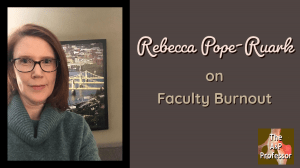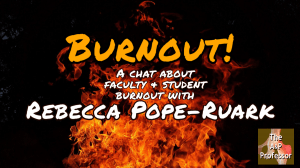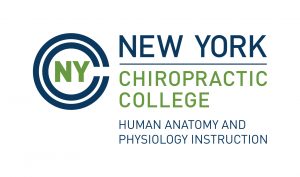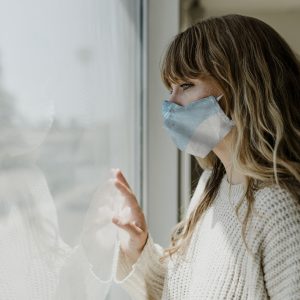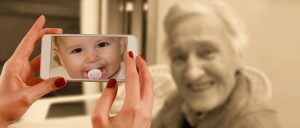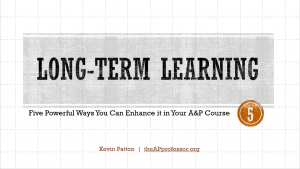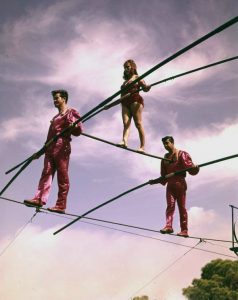Burnout is a serious issue that can affect your health, relationships, and job performance. It’s important to know the signs of burnout so you can take steps to prevent it from happening in the first place. But if you do experience burnout, don’t panic! There are ways for you to get back on track and feel good again. Listen to this episode of The A&P Professor with Dr. Rebecca Pope-Ruark about how we can avoid, deal with, or be there for others experiencing burnout! You'll be glad you did!
- 00:00 | Introduction
- 00:48 | Rebecca Pope-Ruark
- 02:42 | Sponsored by AAA
- 04:08 | Burnout & How to Fix It
- 18:41 | Sponsored by HAPI
- 19:59 | Reducing Academic Burnout
- 34:42 | Sponsored by HAPS
- 35:59 | Student Burnout
- 41:54 | Staying Connected
If you cannot see or activate the audio player click here.
Apply for your credential (badge/certificate) for listening to this episode.
Please take the anonymous survey: theAPprofessor.org/survey
Questions & Feedback: 1-833-LION-DEN (1-833-546-6336)
Follow The A&P Professor on Twitter, Facebook, Blogger, Revue, Tumblr, or Instagram!
Connection with peers, rather than competition, can drive our creative energy and help us through difficult times. (Rebecca Pope-Ruark)
Rebecca Pope-Ruark
2 minutes
Introduction to this episode's special guest, Dr. Rebecca Pope-Ruark. She's an author of the popular book Agile Faculty, host of the Agile Faculty podcast, and an expert in faculty burnout.
- The Agile Faculty Life (Rebecca Pope-Ruark's website) my-ap.us/3dAYcJB
- Agile Academic (Rebecca Pope-Ruark's blog) my-ap.us/31MFLfB
- The Agile Academic Podcast (Rebecca Pope-Ruark's podcast for women in higher ed) my-ap.us/3dysixv
- Agile Faculty: Practical Strategies for Managing Research, Service, and Teaching (book by Rebecca Pope-Ruark) amzn.to/3wrZFKU
Sponsored by AAA
1.5 minute
A searchable transcript for this episode, as well as the captioned audiogram of this episode, are sponsored by the American Association for Anatomy (AAA) at anatomy.org.
Don't forget—HAPS members get a deep discount on AAA membership!
Burnout & How to Fix It
14.5 minutes
Following up on a recent online HAPS webinar hosted by Dr. Rebecca Pope-Ruark lays out some of the basics of burnout. What is burnout? Is it different than stress? How can we deal with faculty burnout?
- Keeping the Spark - March 10, 2021. Presentation by Rebecca Pope-Ruark on faculty burnout and how to avoid or recover from it. Sponsored by HAPS and AACA. (recording of presentation) my-ap.us/3rSOsQb
Sponsored by HAPI Online Graduate Program
1.5 minute
The Master of Science in Human Anatomy & Physiology Instruction—the MS-HAPI—is a graduate program for A&P teachers, especially for those who already have a graduate/professional degree. A combination of science courses (enough to qualify you to teach at the college level) and courses in contemporary instructional practice, this program helps you be your best in both on-campus and remote teaching. Kevin Patton is a faculty member in this program. Check it out!
Reducing Academic Burnout
14.5 minutes
What can we do to prevent or reduce faculty burnout? Are there ways we can support each other and keep each other out of "the burn?"

Sponsored by HAPS
1.5 minute
The Human Anatomy & Physiology Society (HAPS) is a sponsor of this podcast. You can help appreciate their support by clicking the link below and checking out the many resources and benefits found there. Watch for virtual town hall meetings and upcoming regional meetings!
Student Burnout
6 minutes
Yes, there are things we can do in our courses to help with student burnout.
If the hyperlinks here are not active, go to TAPPradio.org to find the episode page.
- More details at the episode page.
- Transcript available in the transcript box.
- Listen to any episode on your Alexa device.
- Need help accessing resources locked behind a paywall? Check out this advice from Episode 32 to get what you need! https://youtu.be/JU_l76JGwVw?t=440
Take The A&P Professor experience to the next level!
The A&P Professor community
Earn cash by referring other A&P faculty to this podcast:
theAPprofessor.org/refer
Tools & Resources
- Amazon
- Text Expander
- Rev.com
- Snagit & Camtasia
- Krisp Free Noise-Cancelling App
- The A&P Professor Logo Items
Sponsors
- Transcript and captions for this episode are supported by the American Association for Anatomy | anatomy.org
- The Human Anatomy & Physiology Society provides marketing support for this podcast | theAPprofessor.org/haps
- Distribution of this episode is supported by NYCC's online graduate program in Human Anatomy & Physiology Instruction (HAPI) | nycc.edu/hapi
Clicking on sponsor links helps let them know you appreciate their support of this podcast!
Follow The A&P Professor on Twitter, Facebook, Blogger, Revue, Tumblr, or Instagram!
The A&P Professor® and Lion Den® are registered trademarks of Lion Den Inc. (Kevin Patton)
As an Amazon Associate I earn from qualifying purchases. I may be compensated for links to sponsors and certain other links.
Click here to listen to this episode—or access the detailed notes and transcript.

